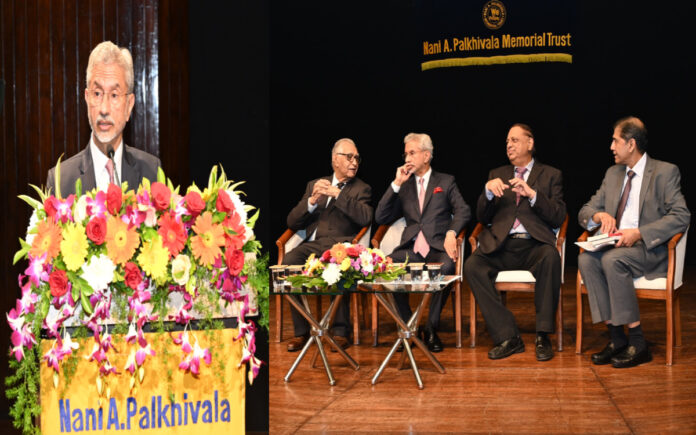Mumbai: India’s relationship with China is undergoing a process of disentangling from the complexities stemming from the 2020 border tensions, according to External Affairs Minister S. Jaishankar. In a lecture delivered on Saturday in Mumbai, Jaishankar reflected on the evolution of India-China ties, emphasizing the need to reassess the trajectory of this critical relationship moving forward.
Jaishankar highlighted that past misreadings by policymakers, driven by idealism or an absence of realpolitik, have not fostered cooperation or healthy competition with China. He observed that the dynamic between the two nations has clearly shifted over the last decade. At the same time, India faces the unique challenge of building a balanced relationship with China, a rising global power. Both countries share a border, have over a billion people, and must navigate historical tensions, a boundary dispute, and differing political systems.
“The relationship is trying to disentangle itself from the complications arising from the post-2020 border situation,” Jaishankar noted. He stressed that India must be ready for the “expressions of China’s growing capabilities” in the future, particularly those that directly affect India’s national interests.
Jaishankar called for India to enhance its comprehensive national power to counter these challenges effectively. This includes not only bolstering border infrastructure and maritime capabilities but also reducing dependence on sensitive areas. He emphasized that India’s approach must center around the principles of mutual respect, mutual sensitivity, and mutual interests.
In terms of bilateral cooperation, Jaishankar recognized the importance of the disengagement process, which occurred in October 2021, at the two remaining friction points between the Indian and Chinese militaries in Demchok and Depsang. While addressing these tensions, Jaishankar underscored the importance of long-term strategic planning, which will benefit both nations as they recognize their collective stakes in the global order.
Jaishankar also touched on the evolving Indo-Pacific region, where the shift in the U.S. and China’s stances is influencing regional dynamics. He pointed to India’s Act East policy and its deeper engagement with countries like Japan and Australia. This engagement forms the foundation of the Quadrilateral Security Dialogue (Quad), which Jaishankar sees as a contemporary approach to addressing regional and global challenges through collaboration.
Also Read | Malaysia Leads ASEAN Amid Myanmar Crisis and South China Sea Tensions
Since its revival in 2017, the Quad has made progress on critical issues such as climate action, supply chains, connectivity, digital capabilities, and maritime security. Jaishankar also pointed to the India-Middle East-Europe Economic Corridor (IMEC) as a new logistics framework contributing to regional stability.
Also Read | Kenya Contributes 200 Additional Police Officers to Haiti’s Ongoing Security Mission
In the last decade, India has initiated or joined nearly 40 partnerships on diverse global and regional issues. Jaishankar emphasized that these efforts demonstrate India’s ability to carry multiple nations on specific topics without compromising its national priorities or strategic objectives.



